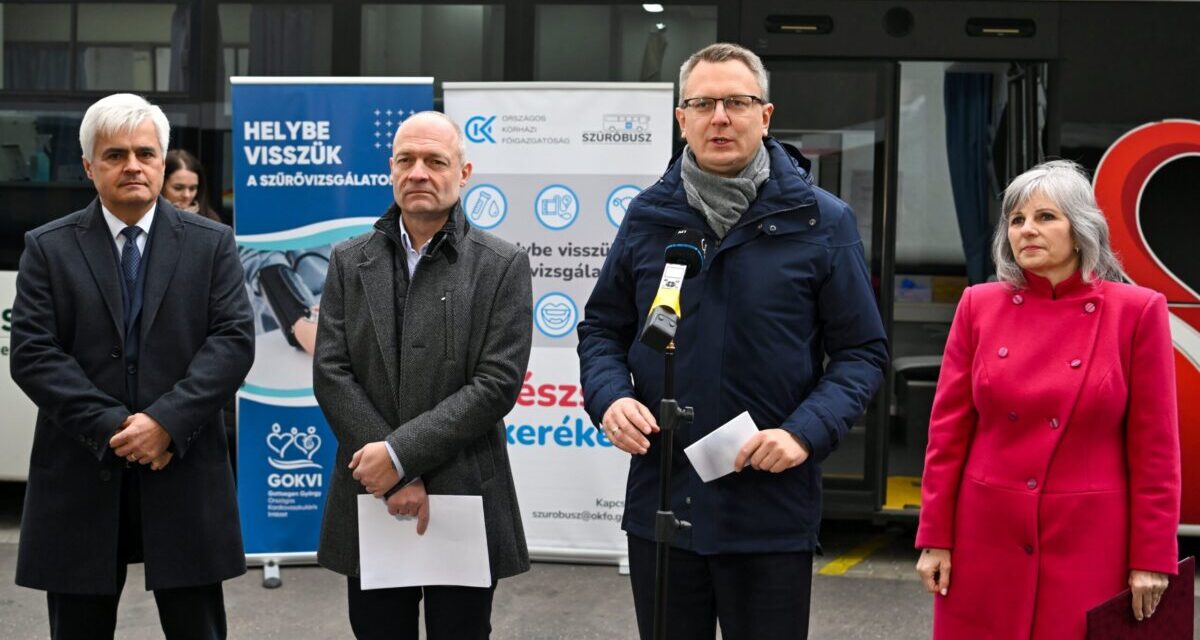Thanks to the program, the residents of the catching-up settlements, which are further away from a hospital or dispensary, have access to adequate care.
The governmental measures taken to prevent disease have visible results, as the life expectancy of the Hungarian population and the time spent in health have increased, said the Parliamentary State Secretary of the Ministry of the Interior on Monday in Budapest, at a professional event at the György Gottsegen National Cardiovascular Institute.
Among the measures, Bence Rétvári singled out the reform of public school meals, the expansion of sports opportunities, the introduction of the so-called clippers, and the restriction of the availability of tobacco products.
According to the state secretary, an important element of this series of measures was the launch of the screening buses, which primarily reached the catching-up settlements that are further away from hospitals and clinics.
Bence Rétvári reported that the vehicles visited 300 disadvantaged settlements, where more than 13,000 people took part in the various tests during the 268 screening days, and almost 25,000 tests were carried out.
During the tests, health values other than normal were found in 7,000 cases, and those affected were referred for further tests, he added.
The results of screenings carried out on buses - for example, cervical and melanoma screening, oral cavity screening, blood sugar and cholesterol level screenings, ophthalmological examination - were uploaded to the EESZT.
According to the State Secretary, the health-preserving measures have visible results despite the epidemic: in the last decade, life expectancy has increased by 1.5 years, and in terms of the number of years spent in good health, Hungary is now ahead of 13 EU countries, compared to 2010, when it was ahead of only five yes.
Péter Andréka, the director general of the György Gottsegen National Cardiovascular Institute, said that cardiovascular problems are the leading cause of death in the developed world, and that the most effective way to combat a disease is to detect the problem before it develops.
He said that the institute already started these screening bus examinations in 2019, and since then more than ten thousand people have been examined, two thousand of whom already had symptoms and complaints.
This year, their bus performed five hundred screenings, and they had to send two hundred people for further testing, he explained.
Gabriella Bábiné Szottfried, the Deputy Director General responsible for public health and prevention at the National Hospital General Directorate (OKFŐ), said that in March of this year, the General Directorate took over the operation of the ten general screening buses from the National Public Health and Pharmaceutical Center and assigned them to the hospitals performing the managing county function.
The results speak for themselves, he said, adding that it is of great importance that, for example, the screening bus of the national cardiovascular institute reaches disadvantaged settlements with special examinations.
MTI












